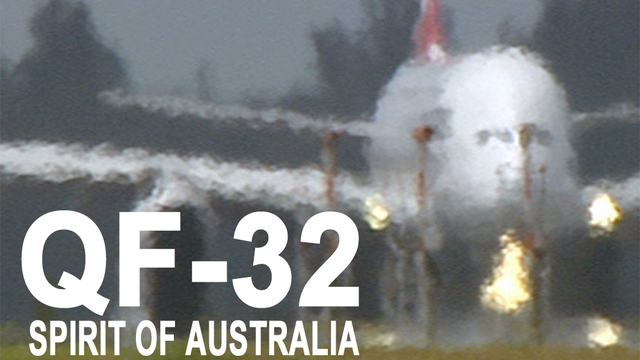On 4th November 2010, 440 passengers boarded Qantas Flight 32 bound for Sydney. As an airline renowned for its unparalleled safety record, powered by prestigious Rolls-Royce engines, the aircraft defined 'safety in the skies'. Never could the passengers have anticipated the near-calamitous events that followed soon after take-off...
"I saw a flash of white, then there was an incredibly loud bang and the whole plane started to vibrate ... it felt as if we were plunging out of the sky", one passenger recalls.
With substantial faults - an engine down, a punctured wing, a malfunctioning fuel system, various leaks - combined with no verbal communication from air traffic controllers, the pilots desperately sought to land the damaged plane. There was no margin for error.
"The nose bucked up on touchdown", pilot Matt Hicks explains. If that wasn't bad enough the auto-brake system had also malfunctioned.
"Brake! Brake!", Hicks called.
"I am!", replied captain Richard De Crespigny.
"No, get onto them!" Hicks shouts.
"I am!I am!". De Crespigny has the brakes to the floor as the plane screams down the runway. It stops just a hundred metres short of the end. But the ordeal didn't end there:
"I remember thinking, 'okay, job done'. But it wasn't...".
Having miraculously landed the plane at Changi airport, the pilots encountered yet more dangers. Fire fighters and air traffic controllers recount how they watched in awe as the plane roared down the runway,
"fuel streaming from the wing". With its tyres reaching exceptionally high temperatures from maximum braking, the risk of fire and subsequent explosion was high, hindering the evacuation process:
"one spark and we were cinders".
In the wake of the accident Qantas temporarily grounded their A380 fleet. They had never seen so many problems and of such a severity occur in the same plane at the same time. In the days that followed the accident a rigorous examination of Flight 32 revealed that a misaligned part had led to a
"fatigue fracture" within the stub oil pipe, causing projectile to fly out of the engine, damaging the rest of the aircraft. For Qantas the nature of the fault absolved them of responsibility for the crash and laid it at the feet of another industry giant: Rolls-Royce.
As designers, manufacturers and maintainers of the engine, it was Rolls-Royce's responsibility to make sure that any weaknesses were found. Worse still, they were aware of the weakness and had been replacing other suspect engines for months. Yet they have refused to comment, raising concerns over the possible manufacturer of the next generation of super passenger carriers.
"For the future of the business you need openness or people will just get killed". For the passengers of QF 32 it was a close call; the next generation of passengers may not be so lucky.
Produced by ABC Australia
LEARN MORE.
WATCH MORE.
JOIN THE DISCUSSION.
 On 4th November 2010, 440 passengers boarded Qantas Flight 32 bound for Sydney. As an airline renowned for its unparalleled safety record, powered by prestigious Rolls-Royce engines, the aircraft defined 'safety in the skies'. Never could the passengers have anticipated the near-calamitous events that followed soon after take-off...
On 4th November 2010, 440 passengers boarded Qantas Flight 32 bound for Sydney. As an airline renowned for its unparalleled safety record, powered by prestigious Rolls-Royce engines, the aircraft defined 'safety in the skies'. Never could the passengers have anticipated the near-calamitous events that followed soon after take-off...




